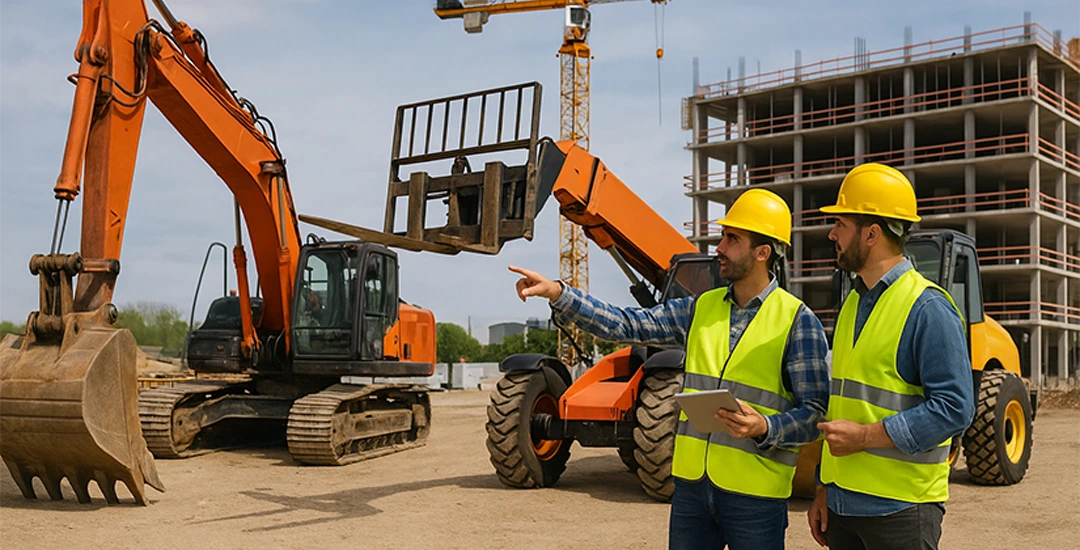Efficiency and cost control are essential for maintaining competitiveness in the fast-paced construction sector of today. For contractors, particularly those handling multiple or varied projects, owning every piece of equipment can be a financial burden. That’s where construction machinery rental comes into play. Renting equipment offers flexibility, financial benefits, and operational convenience, making it a smart solution for contractors of all sizes.
Lower Upfront Costs And Improved Cash Flow
One of the most compelling reasons contractors opt for machinery rental is the significant savings on upfront costs. Buying new construction machinery, whether it’s an excavator, bulldozer, or crane, involves a substantial capital investment. For many contractors, especially small to mid-sized firms, tying up large amounts of capital in equipment can limit financial flexibility and reduce the ability to invest in other areas of the business, such as workforce expansion or new projects.
There is no need for a large upfront payment when you rent. Contractors can access high-quality equipment on an as-needed basis, allowing them to preserve working capital and maintain a healthier cash flow. This approach is especially helpful in seasonal or fluctuating markets, where equipment might only be needed for a few months out of the year.
Access To The Latest Technology
Construction machinery evolves quickly, with advancements in fuel efficiency, automation, safety features, and environmental compliance. Purchasing equipment means a contractor may be stuck with outdated technology just a few years down the line. On the other hand, rental companies routinely update their fleets to meet industry standards and customer expectations. This allows contractors to benefit from newer, more efficient, and safer machinery without the responsibility of owning it.
Moreover, rental equipment is typically well-maintained. Reputable rental providers conduct regular inspections and servicing, which reduces the likelihood of breakdowns and helps ensure optimal performance on-site. This level of reliability is essential for contractors working under tight schedules and budgets.
Reduced Maintenance And Repair Responsibilities
Owning construction machinery involves ongoing maintenance, repairs, and associated costs. These expenses can accumulate over time and often come unexpectedly, disrupting cash flow and project timelines. With rental equipment, those responsibilities shift to the rental provider.
Contractors using rented machinery benefit from reduced downtime and less hassle related to service logistics. In many cases, rental agreements include 24/7 support, replacement machines, or on-site repairs if problems arise. This convenience not only saves money but also frees up valuable time and internal resources that can be directed toward core construction activities.
Project-Specific Flexibility
Every construction project has different requirements in terms of scale, location, duration, and machinery. Purchasing equipment locks contractors into using those assets even when they may not be the right fit for every job. Rental services, by contrast, offer the flexibility to choose the exact machinery required for a specific project.
Need a mini excavator for tight urban workspaces this week and a large crane for a high-rise project next month? With machinery rental, that’s entirely feasible. Contractors can scale equipment up or down depending on workload, helping them stay agile and competitive across diverse job sites.
No Depreciation Worries
Construction machinery, like any physical asset, depreciates over time. For owners, this means losing value year after year, even if the equipment isn’t being used regularly. When it comes time to sell or trade in a machine, its resale value may not reflect the original investment.
By renting machinery, contractors avoid the issue of depreciation altogether. Since they don’t own the equipment, there’s no need to worry about long-term value loss or resale challenges. This translates to fewer accounting headaches and more predictable budgeting.
Streamlined Logistics And Storage
Owning large machinery also creates logistical challenges. Equipment must be transported, stored securely when not in use and insured properly. These additional responsibilities can complicate operations, especially for companies working on remote or temporary sites.
Rental companies typically handle transportation and delivery, ensuring that the equipment arrives at the job site on time and in good condition. Once the project is complete, the rental provider retrieves the machinery, removing the need for long-term storage solutions. This convenience helps contractors stay focused on building rather than managing logistics.
Conclusion
Construction machinery rental is no longer just a backup plan—it’s a proactive, strategic decision embraced by contractors who want to maximize efficiency, reduce costs, and remain competitive. With benefits ranging from financial savings and equipment flexibility to maintenance relief and access to modern technology, renting is clearly a cost-effective solution in a fast-moving industry.


